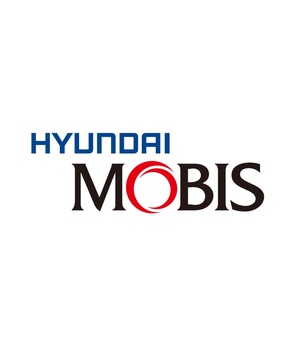- Business cooperation agreement signed with German optical company ZEISS for the development of 'Holographic Windshield Display' technology for vehicles
- Utilizes the windshield as a large monitor to display driving information, navigation, and convenience features
- Emphasize differentiated product value and user experience with innovative new technologies that replace existing instrument clusters and AVNs
- Secures future technology to lead market trends, providing mobility solutions optimized for customer demands
SEOUL, South Korea, Oct. 14, 2024 /PRNewswire/ -- Imagine navigation and driving information unfolding like a panorama across the wide, transparent windshield where the driver's gaze rests. Passengers next to the driver watch movies or other videos on the vehicle's glass. While viewing the latest video, a video call comes in, and a friend's welcome face appears in the corner of the glass screen. This dream technology, previously existing only in movies or advertisements, is about to become reality. It's a scene made possible by the convergence of automotive electronic systems and ultra-precise optical technology.
Hyundai Mobis (KRX 012330) is partnering with the world-renowned German optical company ZEISS to develop the 'Holographic Windshield Display (Holographic HUD)' technology. Holographic HUD utilizes the vehicle's windshield as a transparent display to check various driving information or simultaneously enjoy infotainment features such as music, videos, and games.
Hyundai Mobis announced on the 13th, that it recently signed a business cooperation agreement with ZEISS for the joint development of Holographic HUD at its technical research center in Yongin, Gyeonggi-do. As this technology is a next-generation display technology with no current mass production examples, the two companies plan to start mass production as early as 2027 through close technical cooperation.
The core of Holographic HUD technology is to clearly display various driving, convenience, and infotainment content in a wide space extending from the driver's seat to the passenger seat. This technology dramatically evolved from existing head-up displays, which only showed relatively simple information such as driving speed, navigation routes, and speed limit warnings.
This transparent display technology enhances driving safety as the driver can view all information at once without significantly moving their line of sight from the road ahead. Another advantage is that it can completely transform the interior front design of vehicles by eliminating various display devices mounted on the dashboard while providing an unobstructed, open feeling without interfering the driver's and passengers' field of vision.
- 'Joining Hands' with World-Class Optical Company ZEISS 'Maximizing' Technological Synergy
ZEISS, Hyundai Mobis' partner in this joint technology development, is a leading technology enterprise operating worldwide in the fields of optics and optoelectronics. And ZEISS Microoptics, as part of strategic organization of ZEISS, is the leading provider of sophisticated microoptical and holographic-optical solutions for a variety of applications in the automotive, hometech and consumer sectors. Multifunctional Smart Glass technology enables, among other things, large-scale holographic projection systems, highly integrated cameras in transparent media and holographic lighting applications. ZEISS Microoptics offers the complete value chain from optical design and mastering to holographic replication systems for series production,
Hyundai Mobis is a world-renowned automotive supplier, which provides products and services optimized for customers in future mobility areas, including electrification, autonomous driving, infotainment, and connectivity. It has ranked sixth for the third consecutive year in the "Global Top 100 Suppliers" list by U.S. Automotive News, a global automotive publication.
Hyundai Mobis and ZEISS plan to maximize synergy by mobilizing their specialized technical capabilities for this technology development. Hyundai Mobis will oversee system development and develop and supply the projector, a key component technology. In the Holographic HUD system, the projector is a device that projects content such as videos and images onto a transparent screen using lenses and reflectors. This technology requires miniaturization, noise reduction, heat reduction, and thermal management solutions that are optimized for passenger vehicles.
A transparent and thin film applying holographic technology is needed to render content on the transparent windshield from the light emitted by the projector. This film creates various patterns using photochemical properties when light enters, realizing videos and images. The thickness of the film is less than 100 micrometers (about 0.1 mm), barely thicker than human hair. ZEISS plans to develop and supply Transparent Display applied by unique Zeiss Holographic Technology based on its precision optical technology.
The two companies have already begun preliminary product development by combining these specialized technical capabilities and plan to launch mass-produced products as early as 2027. It is known that Hyundai Mobis and ZEISS created a prototype last month and conducted a demonstration for domestic global automaker customers. According to forecasts by the international market research firm OMDIA Research, the worldwide Holographic HUD market is expected to grow to about 7 million units by 2030, establishing itself as a new trend in the next-generation display field.
Jung Soo-kyung, Executive Vice President and Head of Automotive Electronics Business Unit at Hyundai Mobis, stated, "Starting with this new technology cooperation utilizing the vehicle's windshield with ZEISS, we plan to expand our concerted efforts in combining optics and automobiles to various fields such as holographic displays for vehicle interiors and exteriors, and 3D rear lamps."
Hyundai Mobis' technological development achievements in automotive displays continue to emerge. Previously, Hyundai Mobis was the first in the world to develop a rollable display (2023) that moves up and down and rolls according to the vehicle's driving situation and purpose of use and a swivel display (2022). Earlier this year, at CES 2024, held in North America, the company also showcased a transparent display applying hologram optical element technology.
Photo - https://mma.prnewswire.com/media/2528751/1st_photo.jpg
Photo - https://mma.prnewswire.com/media/2528752/2nd_photo.jpg
Logo - https://mma.prnewswire.com/media/1166884/hyundaimobis_CI_Logo.jpg






Share this article